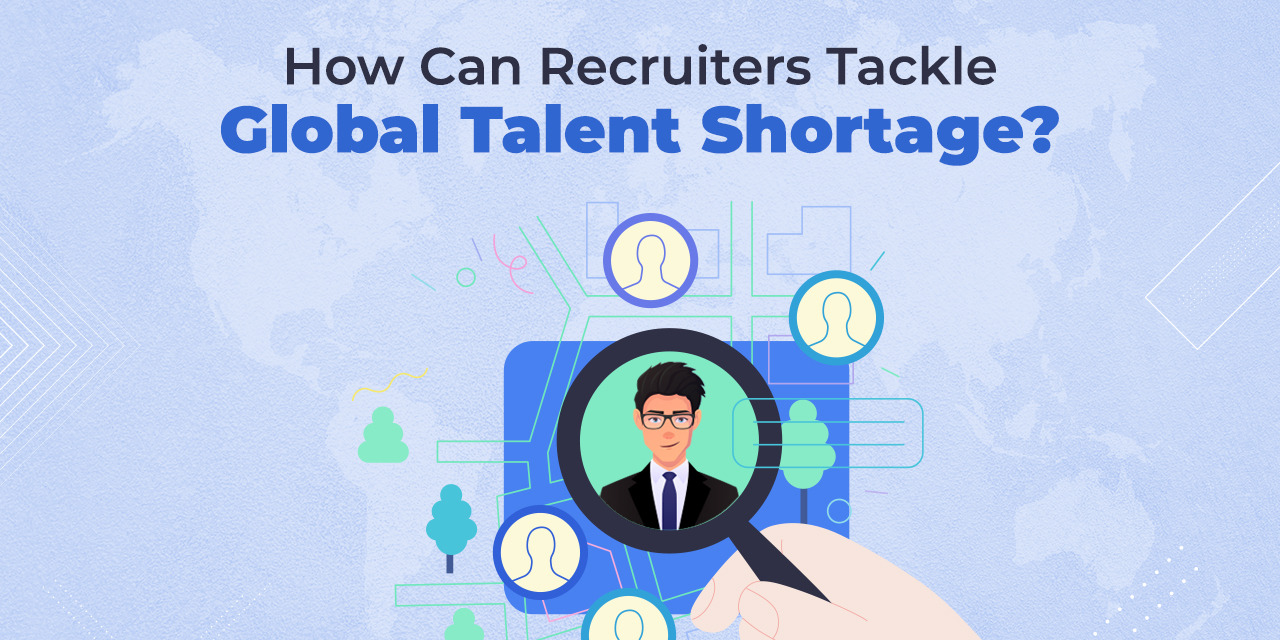Analysts predict that the global talent shortage in Job Market is going to rise beyond expectations. This blog discusses the causes of the shortage, the major industries to be affected, and how recruiters can find talent in such a tough situation.
Organizations are battling to attract top talent to power their workforce in the 21st- Century. The job market has become intensely competitive. Therefore, employing innovative strategies to attract talent is going to be one of the most important HR Tech Trends 2024 and onwards.
According to the estimation by Korn Ferry, the global talent crisis could reach up to 85.2 million people. That’s alarming if the recruiters don’t come up with effective strategies. This blog will discuss the causes of this talent shortage and how you as a recruiter can stay unaffected by this talent shortage.
Source: ManpowerGroup
The Reasons For Extreme Talent Shortage
The analysts are of the opinion that the causes of global talent shortage vary from industry, geography, and other factors. Few of the causes are:
Demographic Shifts:
- The aging of the population in the various countries is among the primary causes. There are fewer young workers who take the place of the older workers as they retire. This leads to a shortage of skilled workers across the industry.
- Innovations in Technology:
The rapid evolution of technology is leading to the emergence of new job roles, such as data scientists and cyber security experts. However, these positions require specialized skills, and there is a shortage of talent with the required expertise. This scarcity of skilled individuals has become a significant hurdle for 64% of emerging tech innovations, impeding their widespread adoption
- Immigration Policies:
There is a great impact of immigration policies on talent availability. The restrictions on immigration can limit the talent pool of skilled workers. However, open policies can be helpful in attracting talent across the globe. A report by International Labor Organization claims that “the immigration laws and visa regimes of developed receiving countries act as major barriers to the concept of circulation of skills.”
- Economical Uncertainties:
According to The World Uncertainty Index, economic uncertainty has been rising since 2016. The common most prominent factors for this uncertainty have been Brexit, the Pandemic, the Russian invasion of Ukraine, and trade tension between US and China. These result in low wages, job insecurity, limited career advancements, and a rise in downsizing companies. These factors don’t motivate the candidates to pursue careers.
- Freelance Trend:
Candidates have more freedom in the job market these days due to freelance work. According to research, millennials will be a part of 58% of the future workforce wherein 50% of them are adopting freelance work. They are not willing to work under strict workplace policies. Having many options makes it hard for organizations to attract talent.
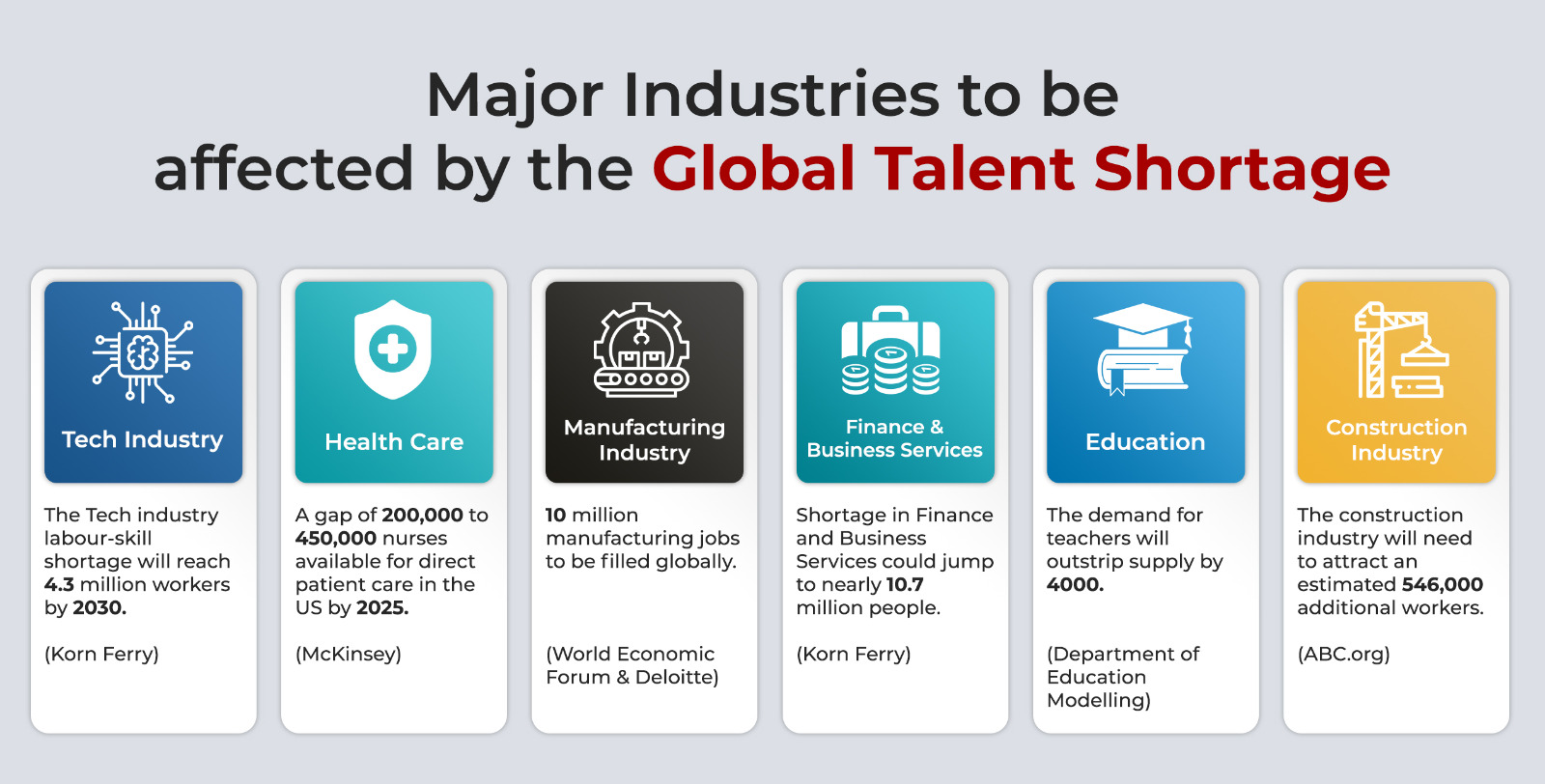
Strategies for Recruiters to Overcome Talent Shortage
The immense talent shortage can make you feel a little uncomfortable but you don’t need to panic. Here are a few of the effective strategies you can adopt to attract top talent and stand out as an attractive employer.
1. Adopting Data Driven Approach
Talent acquisition has started becoming more scientific— and for positive reasons. If you don’t take a strategic approach to finding the right candidate, you may end up paying staggering costs. That is the reason that companies are looking forward to a data-driven talent acquisition approach to address issues like skill gaps and employee turnover.
2. Nurture Existing Talent
Looking for external talent is crucial but overlooking the existing employees can become costly. Reskilling and upskilling current employees can bring effective results in terms of tackling the global talent shortage.
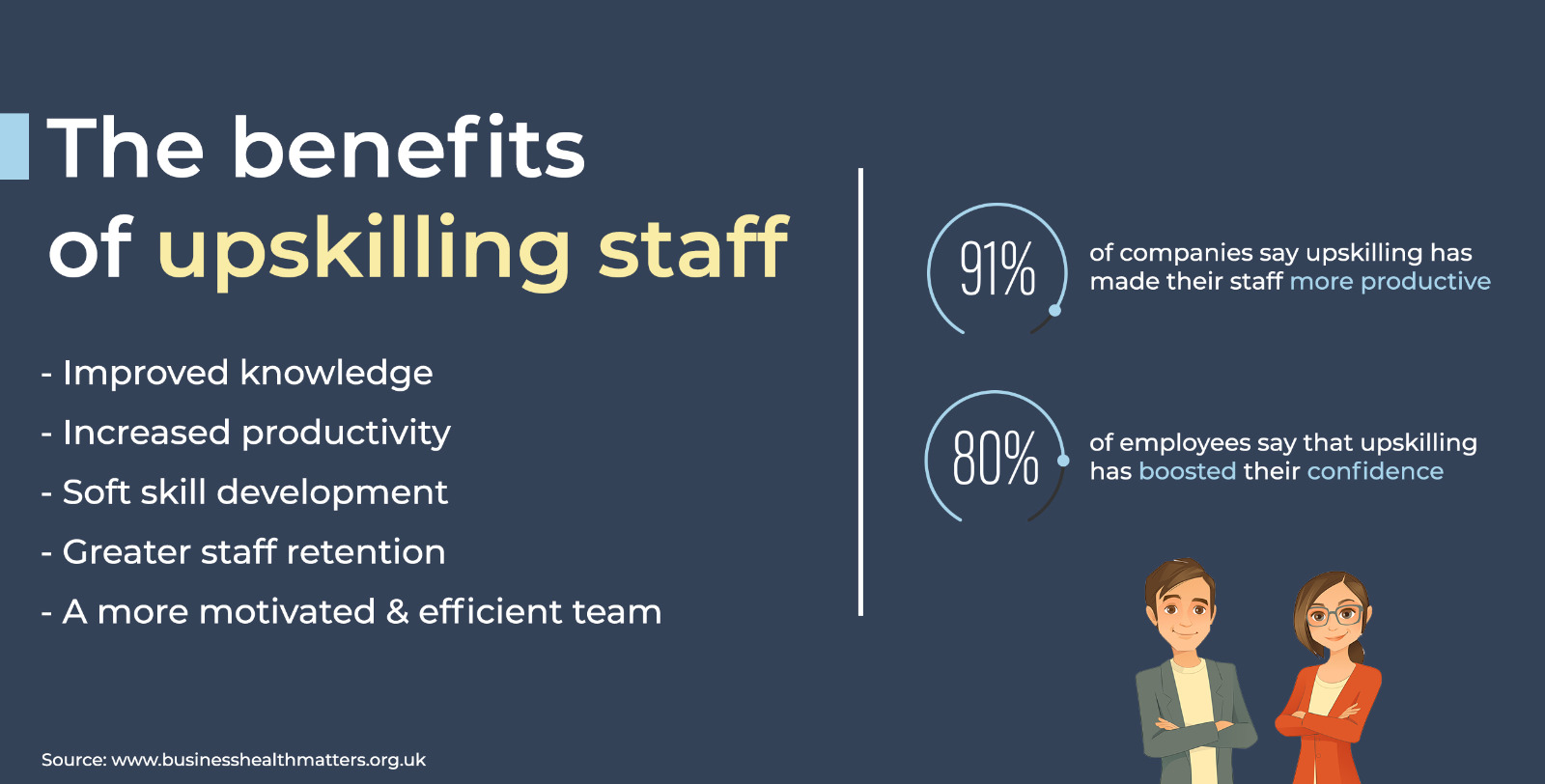
You can fill skill gaps to a great extent by running internal Skill Development training and programs. It will help your current employees acquire new skillsets and knowledge relevant to your requirement.
3. Look for Graduate Talent
In order to ensure the long-term sustainability of your company, you need to create a talent pipeline having young job-seekers. The young talent fills your workforce with energy as they possess an eagerness to make an effect on the organization.
However, the upcoming graduates are Generation Z and millennials who require innovative recruitment strategies for attraction. The traditional methods will not work as the graduates have plenty of options like freelance in the job market. It is better to approach the graduates early by holding career fairs on the campuses because the students look for jobs within their second year.
4. Reduce Time to Hire
The talent shortage wages a war among organizations for attracting the top talent. And if your organization manages to attract a talent then it is essential to leave him with an unforgettable candidate experience. The time of hiring plays a crucial role in creating a candidate experience and if you delay the time, it leaves a negative impression.
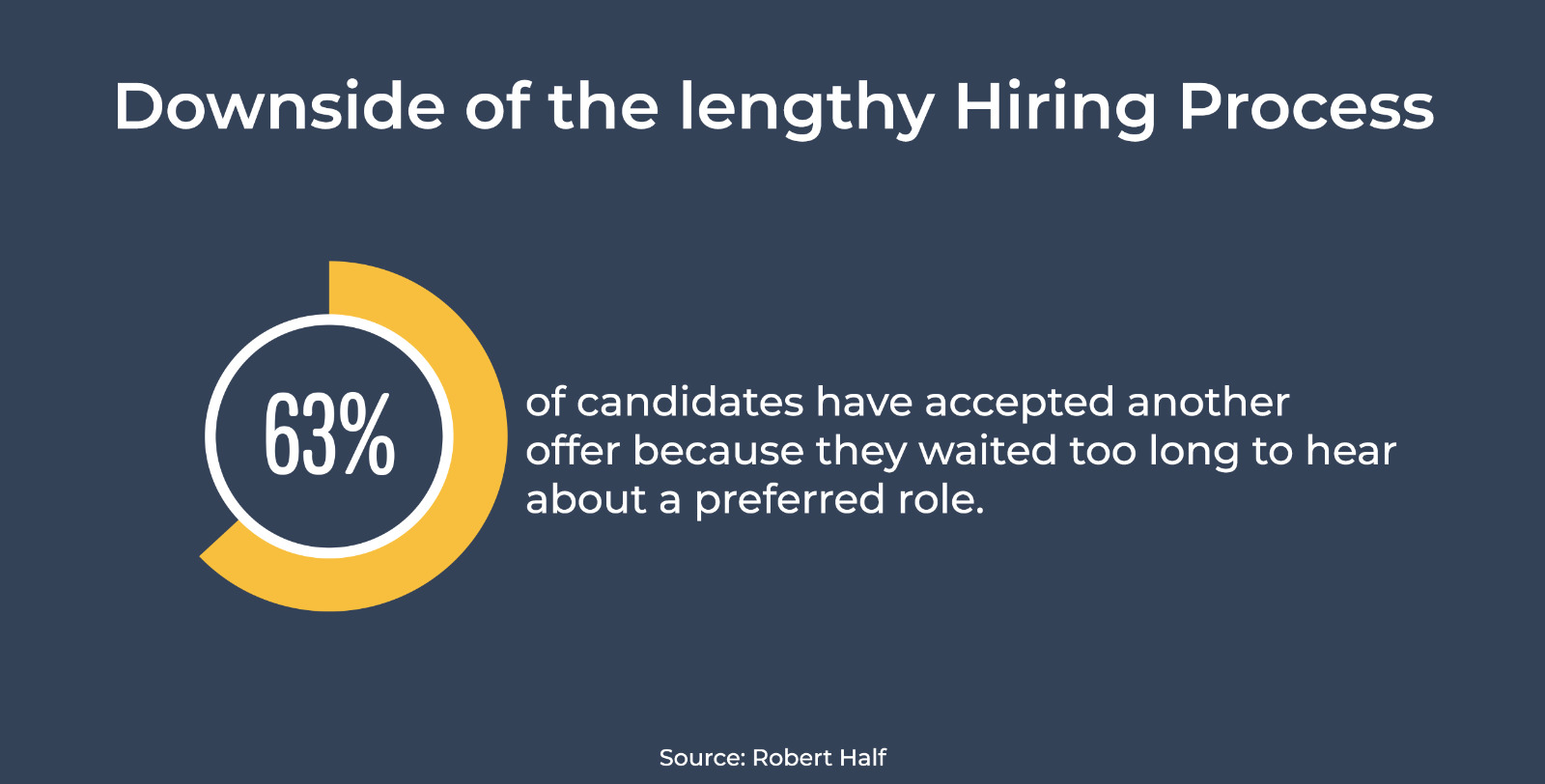
The delayed hiring processes can cost you huge prices in different ways like losing potential candidates. If the candidates reject a job on the basis of a lengthy hiring process, then it will threaten your employer’s branding as well. A poor employer brand means that other candidates will not prefer your company as an ideal place to work at. You should try to employ all technology to reduce hiring time.
5. Social Recruiting
Building a connection with graduates is essential for your business. There is no other replacement better than Social Meia to build that connection. You must have your marketing strategies specially for Social Media because most of the youth are available all the time on platforms like Facebook, Instagram, LinkedIn, and others.
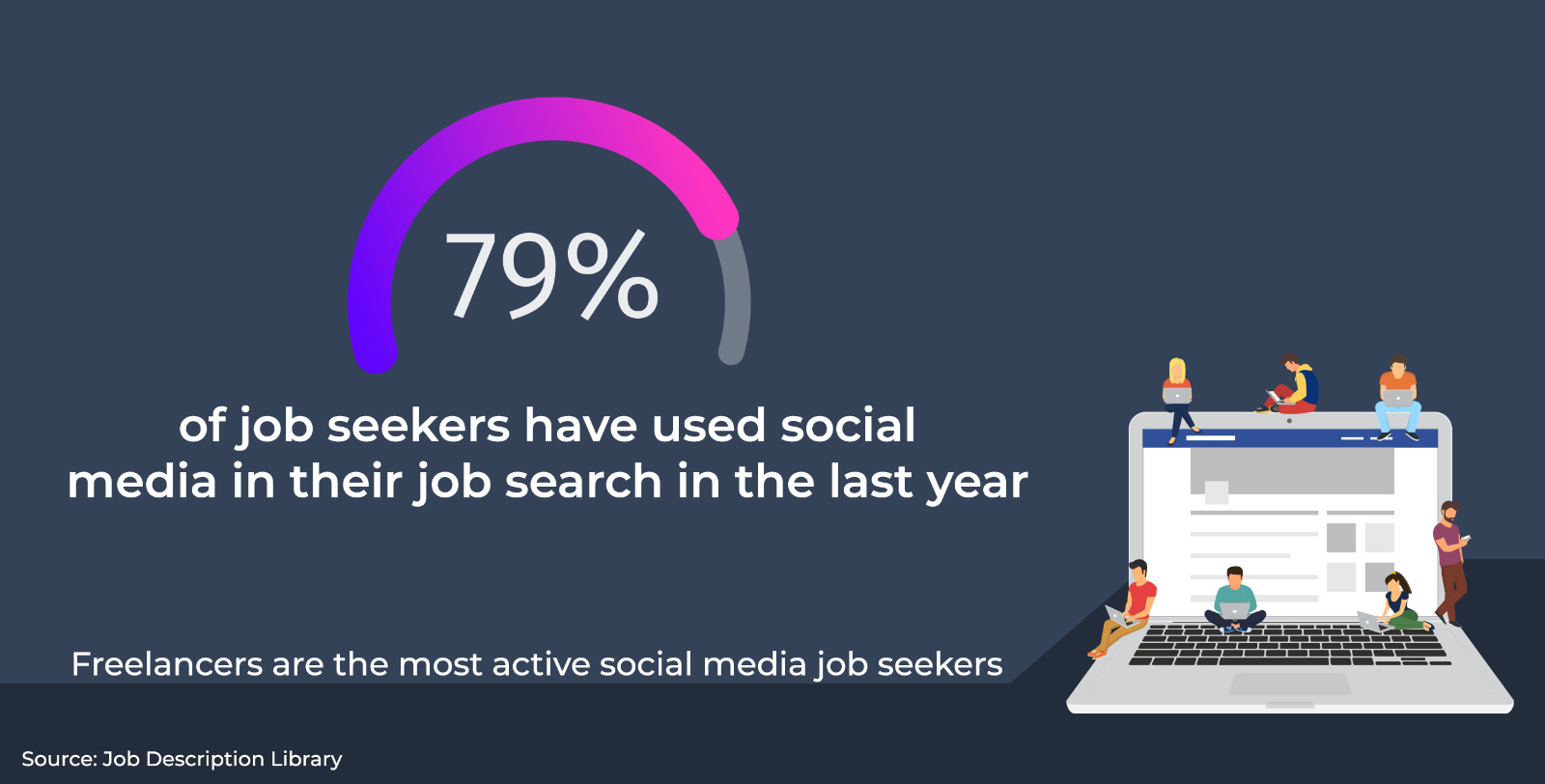
The future workforce will be consisted majorly of Gen Z and Millennials and the recruiters should create their strategies according to the preferences of these generations. LinkedIn has a smaller number of youth as compared to Insta and Facebook therefore it will be wise at your end to market your brand on those platforms too.
6. Gamified Assessment
Games are the most popular in this generation and using gamification for assessments helps you connect with the young generation on an emotional level. Companies can boost their employer branding to a great extent by gamifying talent acquisition because the candidates share their results online on social media. The study also suggests that 78% of the millennial candidates desire to work for companies that gamify their recruitment process.
The best part of gamified assessments is that it reduces the biases involved in hiring and provides accurate results. The game-based psychometric testing assesses the emotional intelligence, critical thinking, communication, problem-solving skills, and cognitive ability of the candidates. The candidates get feedback instantly on their performance and all the process becomes transparent, engaging, and entertaining.
More on ROI of Gamified Assessment for Recruiters
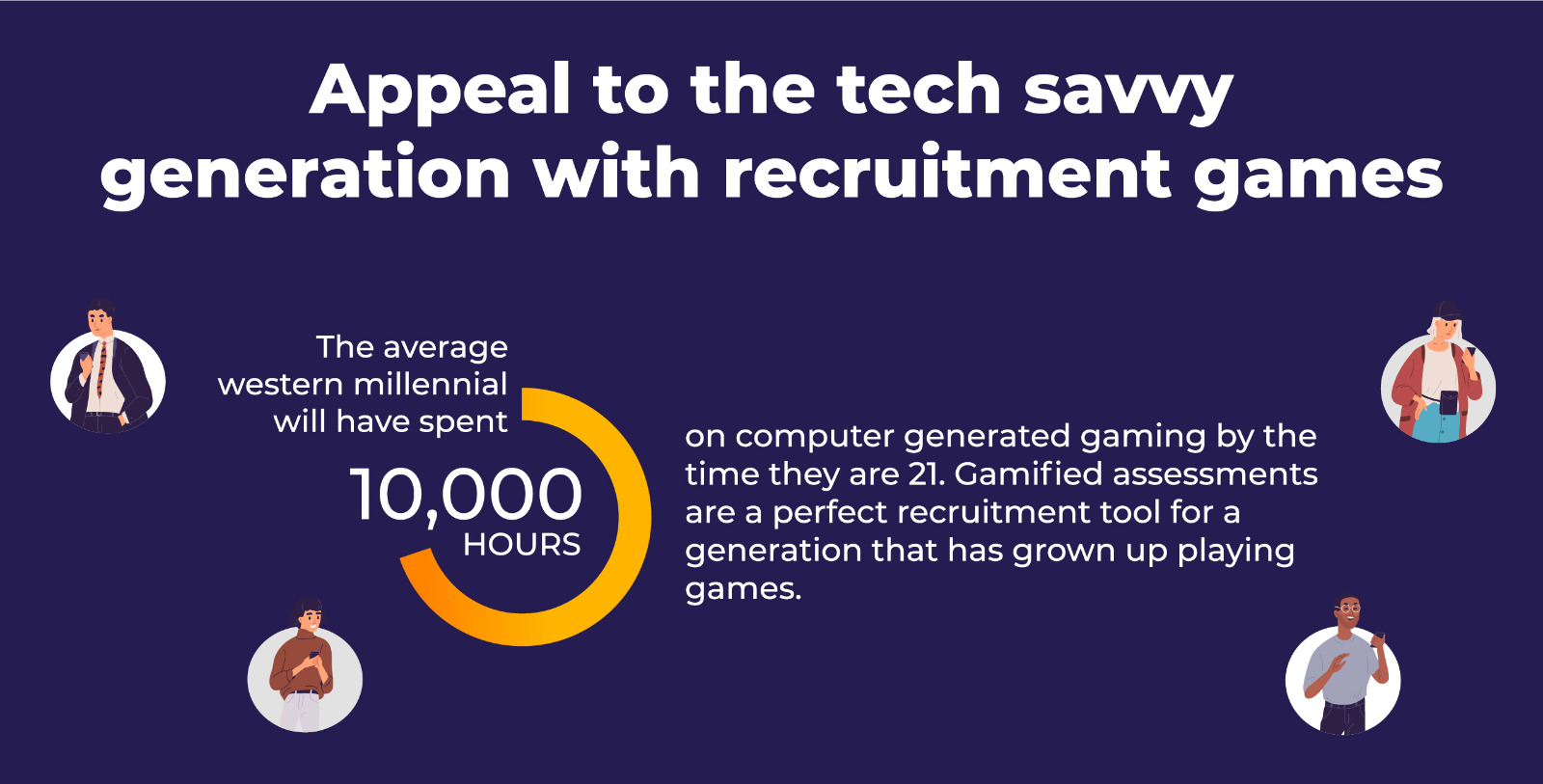
Conclusion
Addressing the talent shortage is definitely going to be your biggest challenge. However, you can compete with other employers by incorporating technology like gamification, engaging students like Gen Z, and speeding up your recruiting practices. The only companies that will be able to attract the right talent during the global talent shortage, will be the ones that embrace innovation and take the lead in the HR Tech space.
